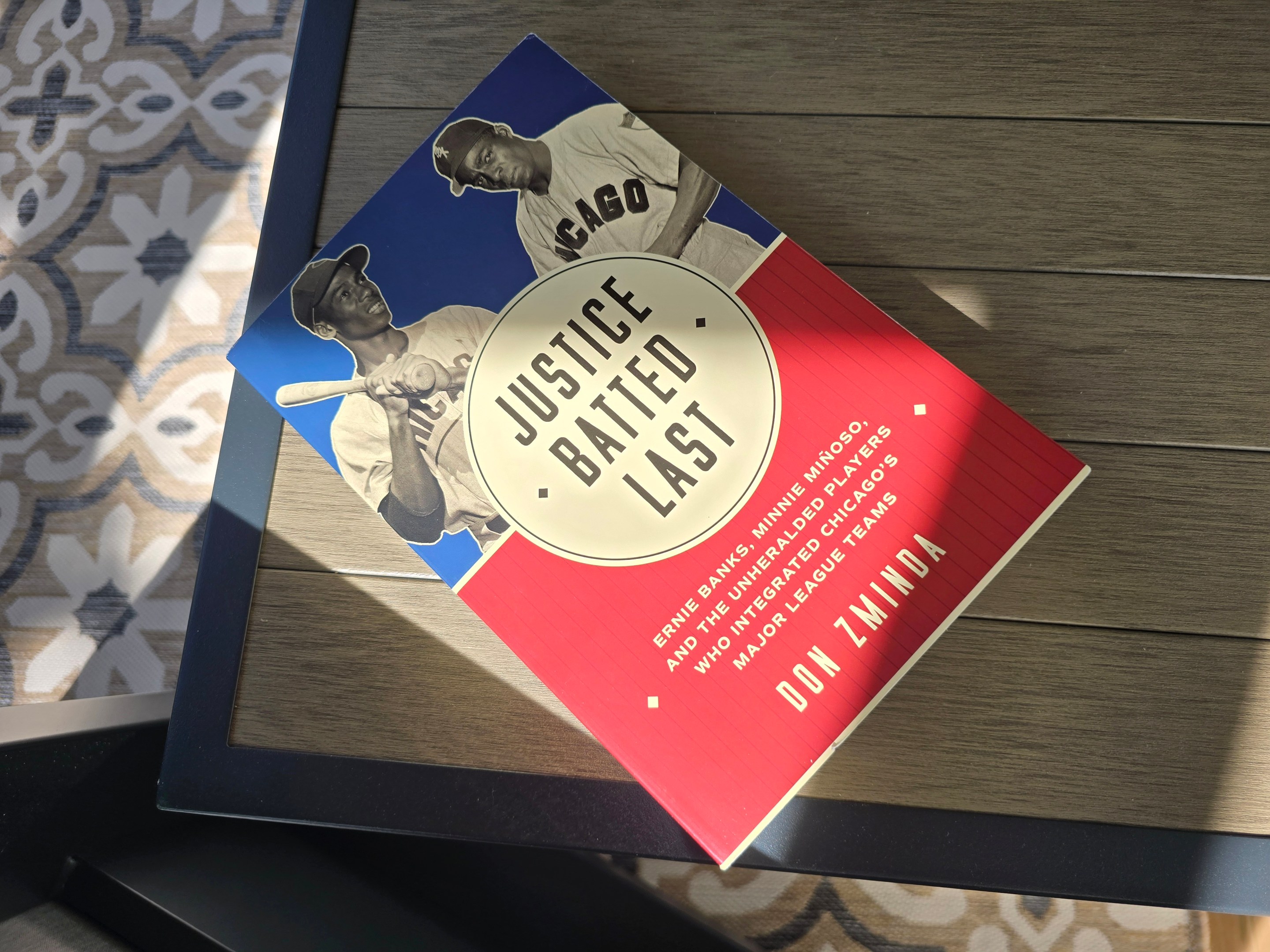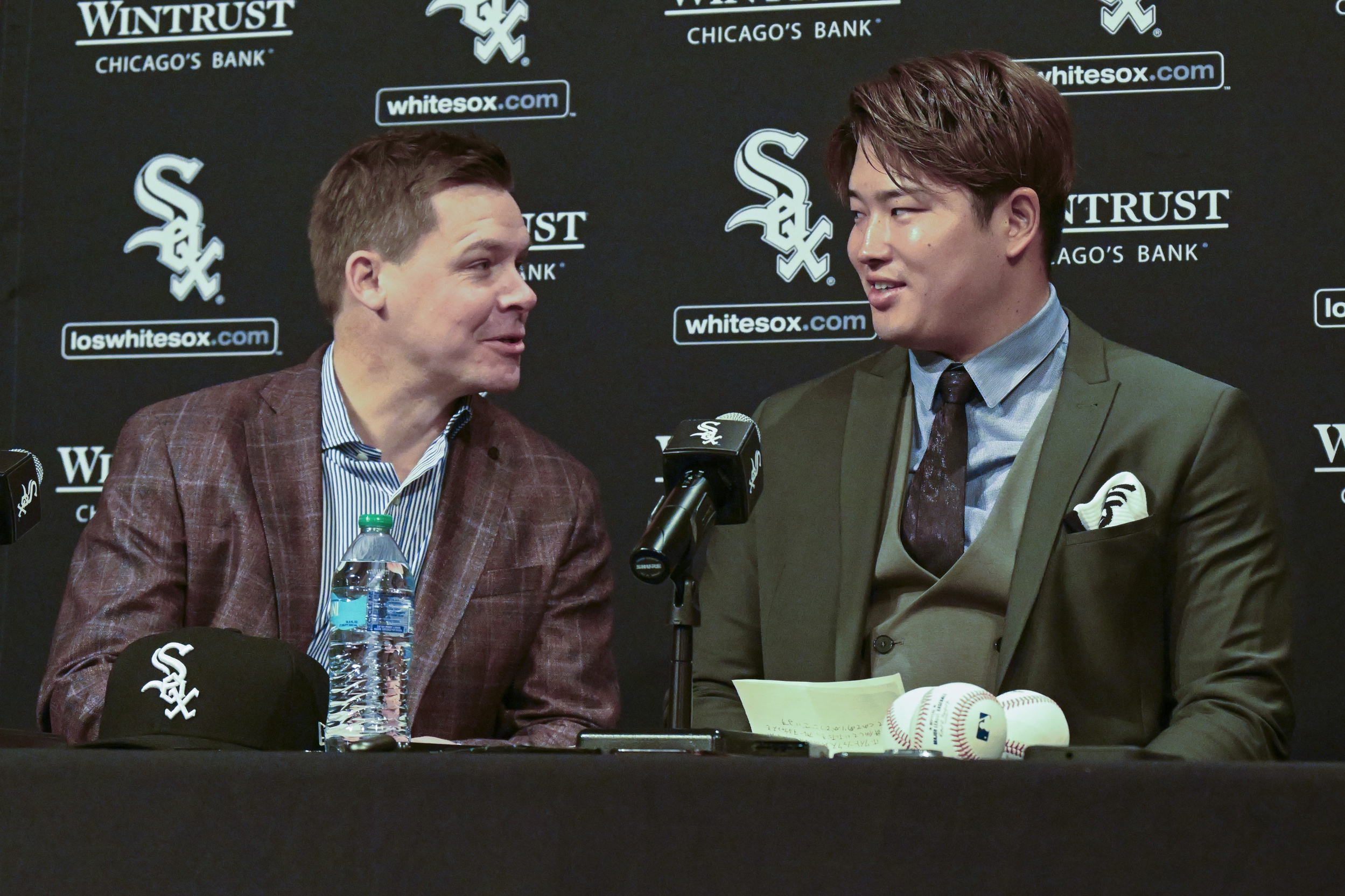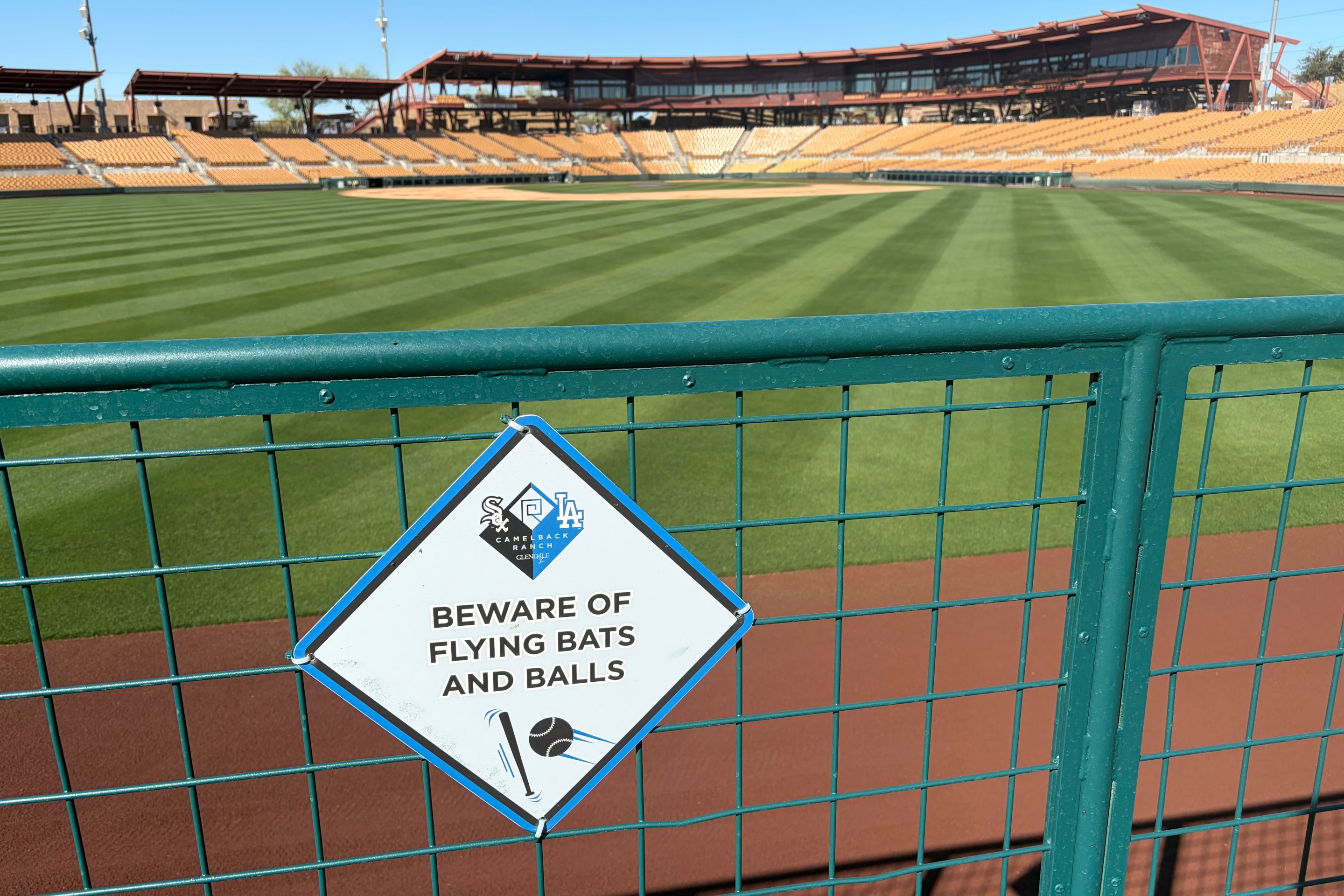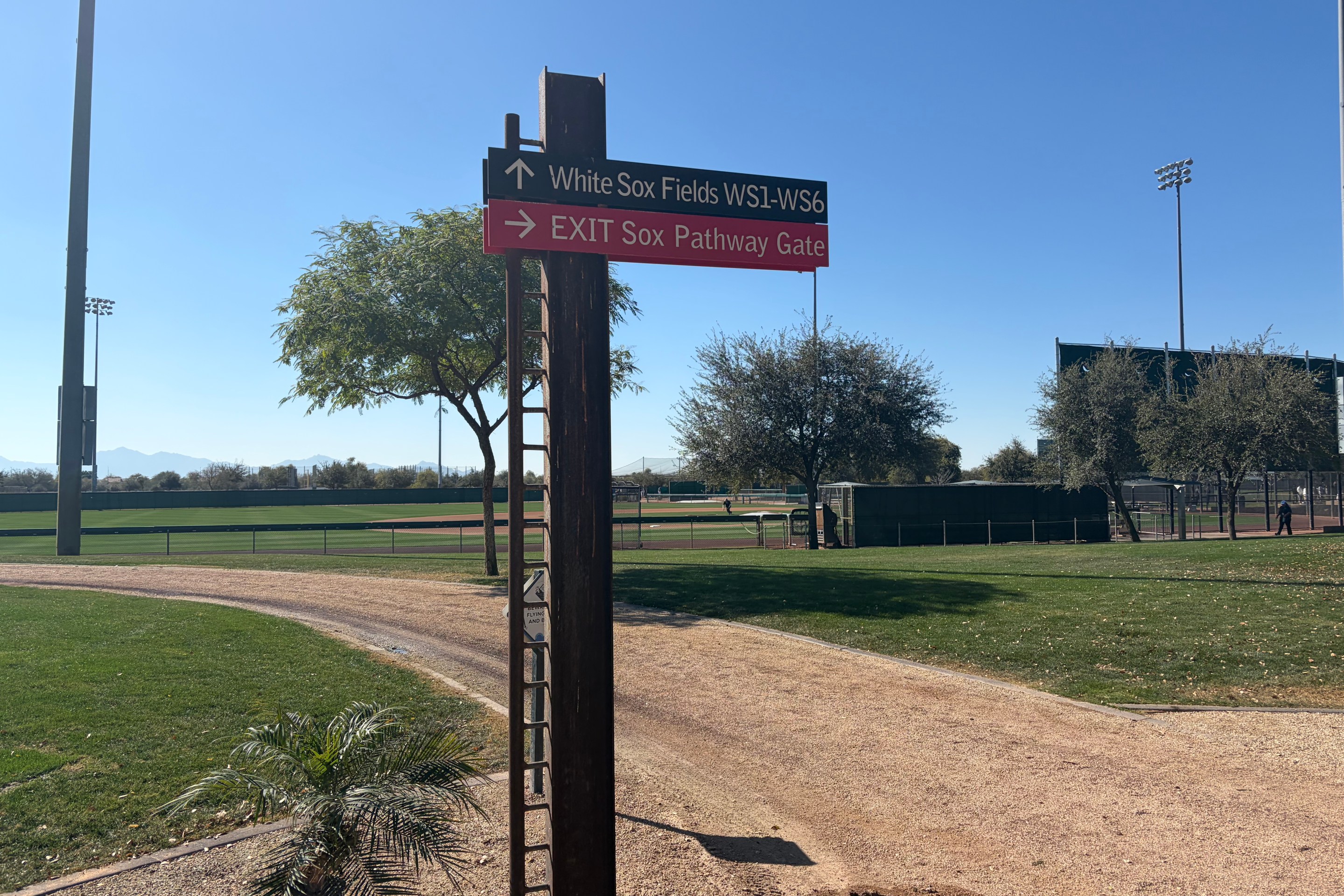Jackie Robinson had crossed the White Sox's radar a couple times well before he broke Major League Baseball's color barrier with the Dodgers in 1947. Robinson grew up in Pasadena, Calif., where the White Sox held spring training at the time. He scrimmaged against the White Sox while playing for Pasadena Junior College in 1938, and then there were stories of a tryout with the Sox in 1942.
In his valuable new book, Justice Batted Last: Ernie Banks, Minnie Miñoso, and the Unheralded Players Who Integrated Chicago's Major League Teams, Don Zminda says it's "very doubtful that there was a tryout at all in 1942." He notes that the original reporting at the time only states that Robinson asked for a tryout, and raves about Robinson attributed to Jimmie Dykes actually came years before it. And even if Robinson did audition, he entered the army in 1942 and wouldn't have been added to the roster in 1945. Given that the White Sox didn't integrate their major league roster until Miñoso debuted in 1951, it seems like any declared sincerity of interest would have been premature.
As the subtitle and cover suggests, Zminda centers the book on Miñoso and Banks, who became the first Black ballplayers for the White Sox and Cubs in 1951 and 1953, respectively, but their arrival is not treated as the culmination of anything. On the White Sox's side, Miñoso finished runner-up in the American League Rookie of the Year voting (and he should have won it), yet a flood of great African-American talent didn't follow. As Zminda notes, in 1953, six years after Larry Doby won Rookie of the Year for Cleveland and three years after Miñoso nearly did the same on the South Side, American League rosters still only carried six Black players total -- four of them on Cleveland, Miñoso on the White Sox, and Satchel Paige in St. Louis.
Rather, Miñoso and Banks are treated as anchoring devices for the evolution -- or stagnation -- of the Chicago teams' attitudes toward integration. Miñoso got his shot with the White Sox because he had years to audition for another team while being blocked with the Indians, and new manager Paul Richards stumped fiercely for him. Based on the amount of time it took general manager Frank Lane to meet the asking price for Miñoso, he probably wouldn't have been independently motivated to seal the deal.
This is reflected in the experience of Black players in the White Sox organization, to whom Zminda devotes ample time. Bob Boyd was the first Black player signed by the White Sox, and Connie Johnson the first to pitch for them, but they were never prioritized. When a path to playing time emerged, Lane found a way to block them with a trade, and they would only get a true shot to stick on a roster after being dealt to the Orioles, when they were in their mid-to-late-30s. Back at his old job, James once chronicled how Sam Hairston, patriarch of three generations of Hairstons in pro baseball, was the first Black American player signed out of the Negro American League by the White Sox, only to buried in the minors.
Underneath the players who actually made it to Chicago, Zminda devotes ample time to Black players who signed with the White Sox, but never advanced. Player development is fickle enough that it can't be said with certainty whether a player was robbed of MLB success, but it's clear that the White Sox's initial forays into integration were closer to token gestures.
(While the White Sox might not have crossed paths with Robinson at the opportune time, they did have an inside track to signing both Banks and Willie Mays on the recommendation of John Donaldson. Zminda writes that Donaldson quit working for the White Sox after being ignored about Banks.)
Justice Batted Last, which was published last month by University of Illinois Press, comes at a valuable time. A week after this book became available, it was discovered that the Pentagon "mistakenly" scrubbed a story about Robinson's Army career from the Department of Defense website as part of a purge removing "all DoD news and feature articles, photos, and videos that promote Diversity, Equity, and Inclusion (DEI)." Major League Baseball has followed the executive branch's lead despite no federal laws demanding it. The league removed all references to "diversity" from its careers page, and the Jackie Robinson Day press release makes no specific reference to the reason there's a Jackie Robinson Day.
As Zminda makes clear by matching the White Sox's and Cubs' integration stops and starts against contemporaneous riots over housing in Cicero and the Trumbull Park Homes -- and the way the experience of Black players took a step back when the team relocated its spring training from California to Florida in the 1950 -- it took a sustained, torturous effort to overcome opposition at every turn, which makes it all the more heartbreaking that opposition still very much exists.
⚙️⚙️⚙️
Other books I've recently read and recommend
The Power Broker, Robert A. Caro: This is the reason why we had no "What are you reading?" posts in 2024, as it took me about 13 months to finish the 1,344-page biography of Robert Moses, the unelected official who reshaped New York City more than any other person. A toddler's sleep regression played a part, as my attempt to shift to audiobook failed when realizing that I couldn't as easily breeze through pages and pages of Moses being a terrible person, or the facts and figures that define Caro's attention to detail, but are better being seen than heard. Once I got past the 800-page mark and Moses started to receive some comeuppance, I flew though the rest. I would recommend it -- especially paired with the 99% Invisible podcast's book club episodes -- but make sure you have the time for it.
The Harder I Fight, The More I Love You, Neko Case: As somebody who became a fan of her solo work through through her vocals with The New Pornographers, I'd been able to piece together a version of her backstory, which included emancipation from her parents as a teenager and a vagabond life until finding a real path forward in Vancouver's music scene, but I didn't know it was "mom left the family under the guise of a terminal cancer diagnosis then came back years later as if nothing was wrong" bad. It makes her career all the more remarkable, because there were no forces naturally enabling it.
Books I've contributed to and recommend
The 2005 Chicago White Sox: Grinders and Gamers: Speaking of Zminda, he's an editor on SABR's new book commemorating the 2005 White Sox that's now available for purchase. I've contributed a handful of articles, including biographies of Pablo Ozuna and Joe Crede. It's a really impressive project, and I'm proud to be a part of it.






